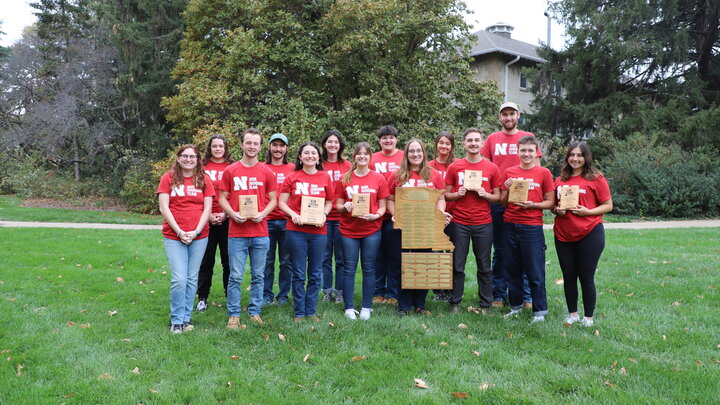The United States is poised to experience one of its largest transfers of leadership in its history, as evidenced by 56 percent of management occupations currently being held by individuals age 45 and older.
Simultaneously, Nebraska will experience a large transfer of wealth.
Lindsay Hastings is the Clifton Professor of Mentoring Research in the Department of Agricultural Leadership, Education and Communication and serves as the director of Nebraska Human Resources Institute (NHRI) at the University of Nebraska–Lincoln. NHRI is a strengths-based leadership mentoring program founded at the university. Hastings’ most recent research focuses on generative leadership.
“Because we will transfer over half of our management occupations in the next 20 years, it’s likely that young adults are going to be taking on significant leadership roles earlier in their careers where socially responsible leadership will be demanded of them,” Hastings explained.
“Not only will we transfer 56 percent of all management occupations, we will also transfer $75 trillion from older to younger generations between now and 2060, so this leadership transfer will happen simultaneously with this wealth transfer,” she added.
GENERATIVE LEADERSHIP
When people hear the word “science,” laboratories, chemicals and equations are probably just a few of the things that instantly come to mind. But what about leadership?
“So often we don’t think about leadership as a science, but it’s a social science,” Hastings explained.
“Generativity is the care and concern one has for establishing and guiding the next generation. Generative leadership is leadership that aims to establish and guide the next generation,” she said. This research has shown its importance as the United States approaches a large shift in the workplace.
The goal is to develop generativity and therefore, social responsibility earlier in the young leaders’ careers. This will make the transition easier as well as prepare them for the future. Hastings hopes to prepare young leaders to contribute to the transfer of leadership, and not just consume the transfer of wealth.
“Frankly, especially with rural Nebraska communities, the sustainability efforts that have gone on in those rural communities will be dependent upon effective transitions of leadership. This transfer of leadership will remarkably impact those sustainability efforts, bringing either vitality or destruction,” Hastings said.
The goal of Hastings’ research is to identify effective leadership, but more importantly, when effective transfers of leadership take place.
“Companies, communities and organizations that can be deliberate about effective transfers of leadership will likely see success in being able to weather that transition,” Hastings said.
Nebraska depends on the transfer of leadership to go smoothly and that both the wealth and leadership stay in Nebraska, and not move elsewhere.




